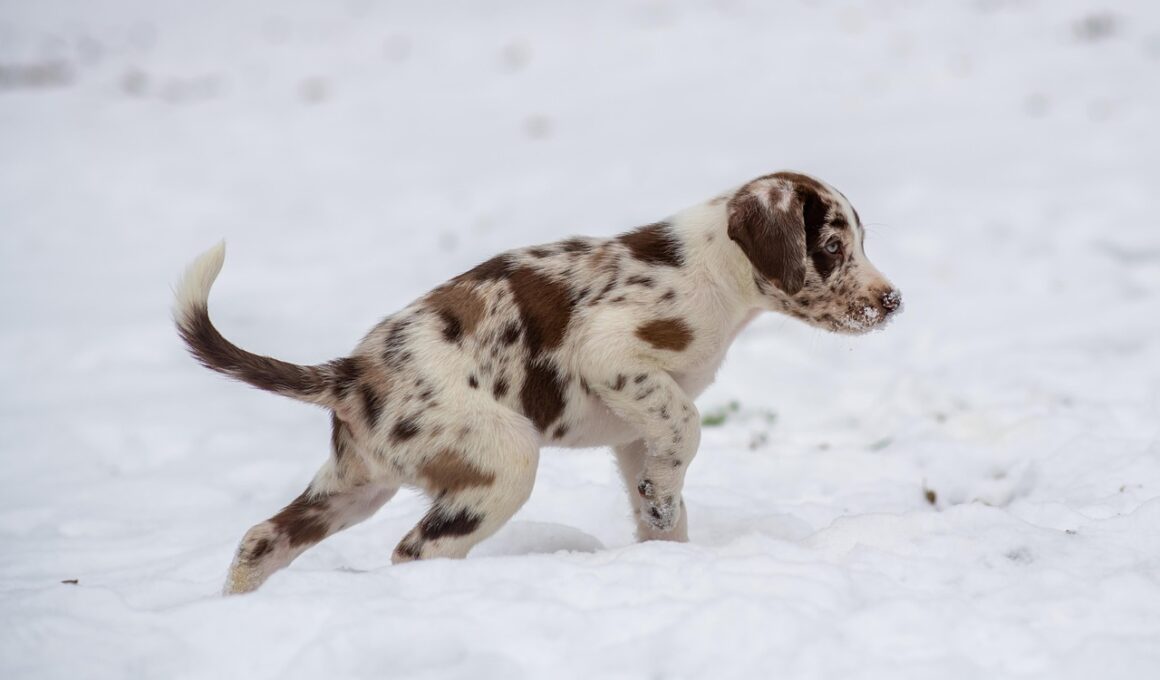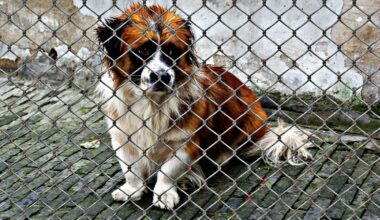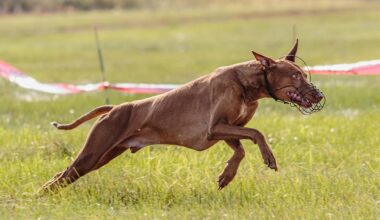When Should Puppies Receive Their First Vaccines?
Puppies have unique vaccination needs that are pivotal for their health and longevity. The initial vaccination stage begins around six to eight weeks of age, when veterinarians recommend a series of core vaccines. These core vaccines are essential as they protect against common and potentially lethal diseases. The first vaccines typically include distemper, parvovirus, adenovirus, and parainfluenza. Vaccination at this age is critical because puppies are still developing their immune systems and are more susceptible to infections. Additionally, many shelters and breeders follow a vaccination protocol that aligns with this timeline to ensure that the pups meet health standards. Owners should discuss vaccination schedules with their veterinary professionals to accommodate specific needs. A complete schedule usually involves a series of vaccinations spaced three to four weeks apart until the puppy reaches around 16 weeks of age. Owners can visit AKC for detailed breed-specific vaccination recommendations that cater to local conditions. Keeping records of each vaccination is vital for health management.
Moving forward, understanding the importance of adhering to the vaccination schedule for your puppy is crucial. Vaccinations promote immunity and bolster your puppy’s defenses against infectious diseases. Delays or gaps in the vaccination schedule may increase risks of infection and compromise their overall health. After the initial vaccinations, annual boosters are recommended based on your veterinarian’s advice. These boosters help maintain immunity as your puppy matures into adulthood. Some regions may illuminate different diseases, leading to tailored vaccination protocols. Owners should ensure vaccinations are administered according to veterinary guidelines. Regular vet visits also provide opportunities to discuss any emerging concerns or familiarize yourself with new vaccination protocols. Puppies should also benefit from additional vaccinations like leptospirosis, bordetella, and Lyme disease vaccines after consulting your veterinarian, since these diseases may be more prevalent in certain geographical locations. It’s paramount to keep your puppy socialized while maintaining their vaccination schedule, as exposure to other animals can enhance their comfort. Seeking guidance will help shape a responsible pet care regimen and promote a healthy relationship with your pet.
The Vaccination Process
During the vaccination process, the veterinarian will assess your puppy’s health to ensure they are fit for vaccination. A brief examination, including checking temperature and general well-being, helps determine if your puppy is ready for their shots. If any underlying health issues are present, your vet may recommend delaying vaccinations. Administering vaccines is a straightforward procedure where a small amount of the vaccine is injected, often into the muscle or under the skin. Following the vaccinations, keep a close eye on your puppy for any side effects. Although side effects are typically mild, including slight soreness or possible lethargy, more severe reactions can occur. If severe symptoms appear, immediate veterinary attention is essential. First vaccines provide an opportunity to enhance the bond between owner and puppy through care and attention. Maintain a good record of all vaccinations, including dates and types administered, as this will be useful for future reference. Always have your puppy’s vaccination card handy, and ensure it accompanies them during vet visits and any travel plans.
The role of socialization during the early weeks can greatly influence a puppy’s behavior as they grow. Introducing puppies to a variety of environments, sounds, sights, and social interactions is essential. While doing so, ensure that socialization occurs gradually and safely, especially before full vaccination coverage. Puppies are particularly vulnerable to diseases such as parvovirus and distemper when exposed to unvaccinated dogs or environments. It is advisable to limit interaction with unvaccinated animals or large gatherings until after completion of the initial vaccine series. Instead, socialization can occur in your home, with well-vaccinated friends or family pets. Taking classes with professionals experienced in puppy training can also facilitate a safe social environment while teaching critical skills. Providing puppies with opportunities for positive experiences enhances their behavioral outcomes. Through positive reinforcement and exposure to new situations, puppies grow into well-adjusted adults. Always be cautious and mindful of potential risks during this vital developmental stage. Work closely with your vet to tailor a socialization plan that complements your puppy’s vaccination schedule while enhancing their social skills.
Post-Vaccination Care and Monitoring
After your puppy receives vaccinations, monitoring them closely is crucial to ensure a healthy recovery. Common mild side effects may include soreness at the injection site, slight fever, or decreased activity. Observing your puppy’s behavior in the hours and days following vaccination can provide insights into their well-being. Offer a calm and comforting environment to help them relax and recover comfortably. Additionally, keep their physical activity low for 24 hours post-vaccination to allow their immune system time to respond effectively. Hydration is essential, so ensure your puppy has access to fresh water at all times. If any concerning symptoms arise, such as persistent vomiting, swelling, or trouble breathing, reach out to your veterinarian immediately. Frequent assessments can help catch any issues and will strengthen your relationship with your vet. Keeping records of vaccinations will help guide future pet care needs and foster ongoing health monitoring. Your involvement in your puppy’s health journey bolsters their immune response while paving the way for a vibrant life ahead. Maintaining communication with your veterinarian is vital to ensure continuity of care for your puppy’s health.
Lastly, understanding the importance of community veterinary resources enhances effective pet ownership. Engaging with community resources helps grow your knowledge about pet vaccinations and overall health care. Many local animal clinics offer education programs and forums dedicated to pet owners, focusing on vaccination and wellness protocols. Such programs often explore emerging trends in veterinary medicine, providing valuable insight into how to adapt care for your pet’s needs. Additionally, local animal shelters sometimes sponsor free vaccination events that can benefit your puppy and other pets in the community. Educating yourself about vaccination, pet care, and local resources creates a well-rounded approach to canine well-being. Always consult with your veterinarian for proper education about vaccines that are appropriate for your area, as regulations can differ significantly. You can also explore resources like the AVMA for comprehensive guidelines regarding fittings, health advice, and vaccinations specific to various breeds. With knowledge and shared community efforts, we can ensure healthy and happy pets throughout their lives.

This article focuses on the when and how of vaccinations for puppies, an essential topic for responsible pet ownership. By understanding the vaccination timeline, pet owners can ensure their dogs are protected against harmful diseases. Vaccinations are a crucial part of preventative care, safeguarding health by stimulating the puppy’s immune system to combat infections. As they go through their growth stages, attending to their health requirements prevents many ailments later in life. Thus, pet owners should keep informed and engaged in this journey, always alleviating health concerns through timely vaccinations and related care. Ensuring your puppy receives the first vaccinations on time is the foundation of lifelong health. Consult your veterinarian regularly to stay informed about any changes or guidelines specific to your area. Ultimately, responsible pet ownership leads to caring for all aspects of your puppy’s well-being, creating a trail toward a long, healthy life full of companionship and joy. With the right knowledge and care, pet owners foster well-rounded animals ready to thrive and contribute meaningfully to their households.
Engaging with your veterinarian ensures that you’re always informed about your puppy’s vaccination needs and changes in local health requirements as well. Often, vaccines must be re-evaluated periodically to incorporate new findings. Keeping current with vaccination information throughout your puppy’s life is critical, especially when dealing with varying health regulations, especially for traveling or contact with other pets. As community health levels fluctuate, returning to your veterinarian helps safeguard the health of both your puppy and other dogs in your environment. Properly administered vaccines lay the groundwork for effective disease management and health maintenance. Remaining proactive in monitoring your pet’s health lends the opportunity to explore any concerns with your vet while developing a trustworthy relationship. Through diligence and education, responsible dog owners can create a beneficial partnership with their veterinarians, leading to enhanced overall health for their pets. Sustainable practices reinforce community health initiatives when vaccinations are accounted for and public health guidelines are observed in pet ownership. With every decision focused on your puppy’s well-being, you pave the way for a fulfilling experience with your beloved companion across their lifespan.


